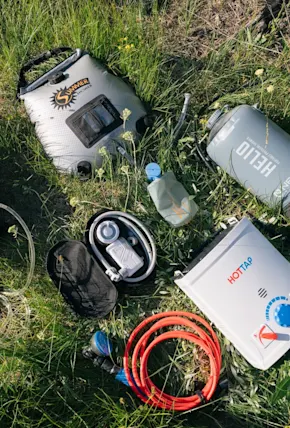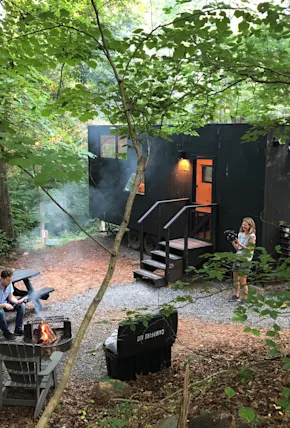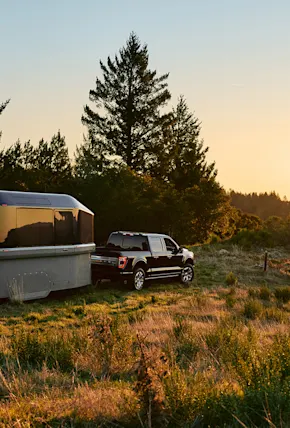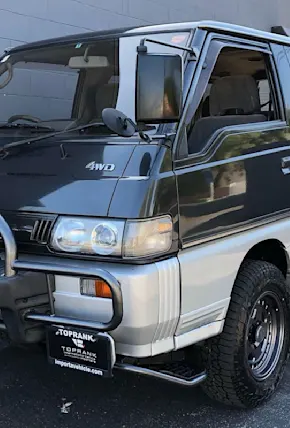Bree Contreras (they/them) is a freelance writer, dog lover, avid outdoorist, and newly initiated Not-Van lifer, currently living in a self-renovated vintage camper with their two giant dogs, Zeus and Apollo. Follow Bree the Builder on Instagram.
Ed Note on Vanlife: Be smart when traveling. Follow local COVID guidelines, wear a mask, wash your hands, limit travel to rural communities, etc. TY
When I announced last summer that I would be quitting my high-stress corporate job to renovate and live in a van, everyone thought I was out of my mind. Why was I throwing away my perfect situation? I had gotten the degree, I had secured the beginnings of a career, had a baller ass apartment in Midtown Houston, had paid off my student loans and was on track to buy a home and live out the American Dream by 35. I had done all of that, and I was absolutely fucking miserable.
I hated the fact that every week felt the same—five days of waking up early as hell, dragging myself to the office to sit and watch the clock, two days to run errands and hang out with my dogs. Rinse and repeat. I resented the fact that I spent close to $20k a year just to keep a roof over my head in a part of town that didn’t give me a two hour daily commute.
On a good day it felt like the adulthood I had been taught to live was a scam. On a bad one I felt utterly hopeless and defeated, like I was getting my ass handed to me in a race I couldn’t quite remember signing up for. Once my lease was up, I knew I needed something else.











